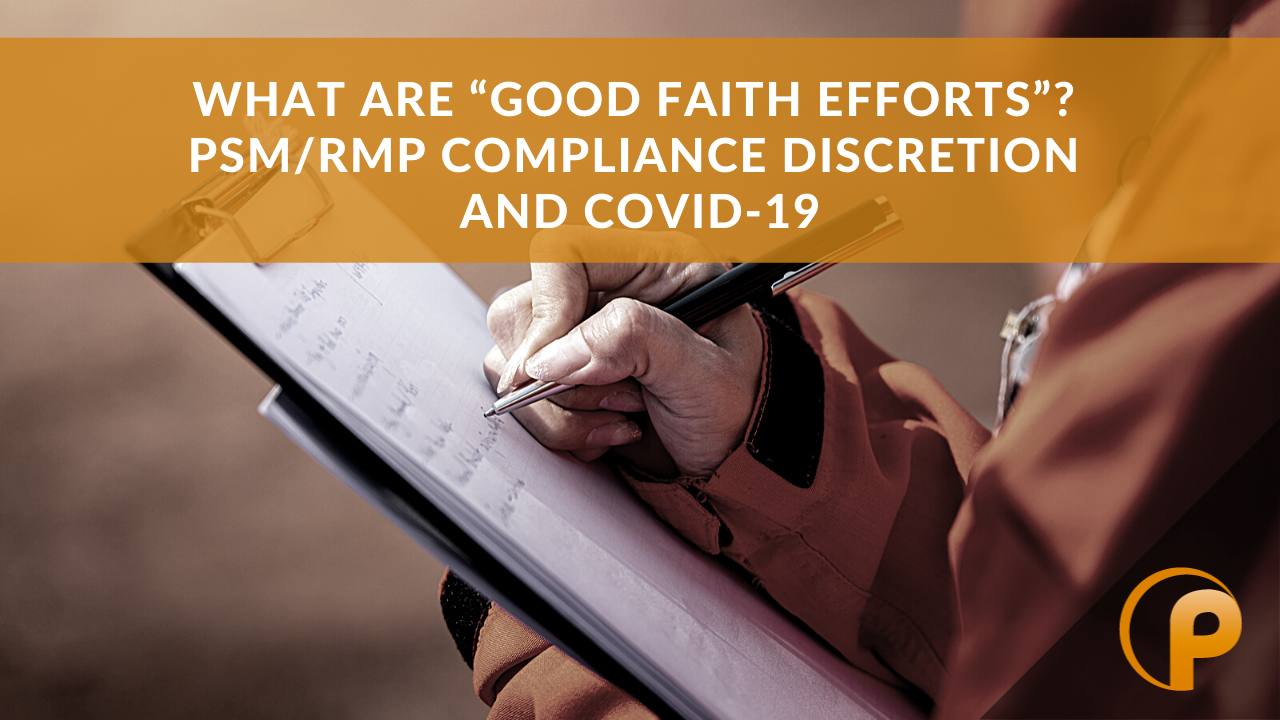
What are “Good Faith Efforts”? PSM/RMP Compliance Discretion and COVID-19 [Webinar]
In response to the health and safety concern presented by the coronavirus in essential industries, OSHA and the EPA have both published enforcement discretion notices that are meant to add some breathing room for facilities juggling regulatory compliance with personal safety. However, the stipulations put in place for facilities to lean on these temporary enforcement policies, especially with regard to the OSHA PSM and EPA RMP standards, are vague as to what facilities must do to qualify for leniency in compliance.
Facilities must demonstrate “good faith efforts”, but what does that really mean with regard to PSM/RPM program elements?
This webinar will explore how COVID-19 can affect several major elements of your PSM/RMP program, what a “good faith effort” looks like to comply with that respective element, and how to document your decisions to ensure both OSHA and the EPA agree that a citation is not warranted.
Will your facility properly leverage the interim enforcement policies to ensure regulator discretion is in your favor?
Join us as we examine how to determine the best way to align these enforcement discretion policies with internal PSM/RMP program goals so that process safety program integrity is not sacrificed for a temporary reprieve on regulatory obligations.
Agenda:
This webinar will include:
- A legal analysis of the OSHA and EPA enforcement discretion policies published in response to the COVID-19 crisis.
- Examination of the term “good faith efforts” as it applies to said enforcement discretion policies.
- Application of the “good faith efforts” concept to each PSM/RMP element with practical suggestions and advice.
- Documentation strategies to ensure both OSHA and the EPA agree that a citation is not warranted in the case of an inspection or audit.
After attending this webinar, participants should be able to:
- Understand the purpose, limits and duties defined by the released OSHA and EPA enforcement discretion policies.
- Define and effectively apply the concept of “good faith efforts” to each main PSM/RMP program element.
- Effectively document decision making processes in a way in which an OSHA or EPA inspector would accept said documentation in lieu of issuing a citation.
- Understand the ramifications and added duties placed on facilities who obtain enforcement discretion from inspectors.
Special Guest Presenter from Conn Maciel Carey, LPP
A frequent presenter and panelist at industry conferences such as AFPM, ILTA, and others, Conn Maciel Carey, LLP is a boutique law firm focused on Labor & Employment, Workplace Safety, and Litigation based in Washington, D.C. Their experienced team understands the legal issues and knows the agencies and people involved in the full range of safety matters – including OSHA and the EPA. Despite the firm’s overall “boutique” size, as an OSHA practice, they boast the deepest bench of true OSHA-specialist attorneys and professionals in the country, with unique relationships with the key regulators.
Resources
Access Presentation
Slides, Q&A & More
Learn more about our Process Safety Management Services
Presenters

Lauren Mercer
Account Director
Lauren Mercer is an Account Director at Provenance Consulting, a Trinity Company. She holds a B.S. in Chemical Engineering from The University of Texas at Austin and has ten years of oil & gas process engineering experience.

Dylan Misslin
Account Director
Dylan Misslin is also an Account Director at Provenance. He earned a B.S. in Nuclear Engineering from Texas A&M University and has six years of oil & gas process engineering experience.

Micah Smith
Partner, Conn Maciel Carey, LLP
Micah Smith is a partner with the boutique law firm Conn Maciel Carey, LLP’s national OSHA • Workplace Safety Practice Group. His practice focuses on occupational safety and health law. Mr. Smith represents clients in the full range of OSHA-related matters across a wide range of industries, with particular experience representing clients in the petroleum refining, chemical processing, and commercial baking industries.



0 comments
Write a comment